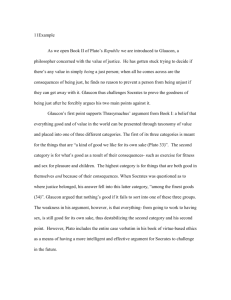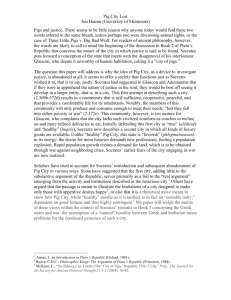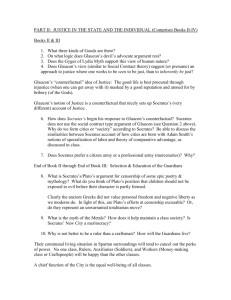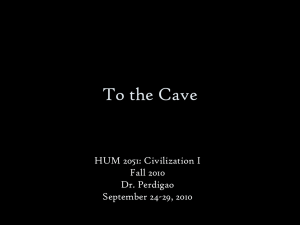Phil 100, Ethics as an Introduction to Philosophy
advertisement
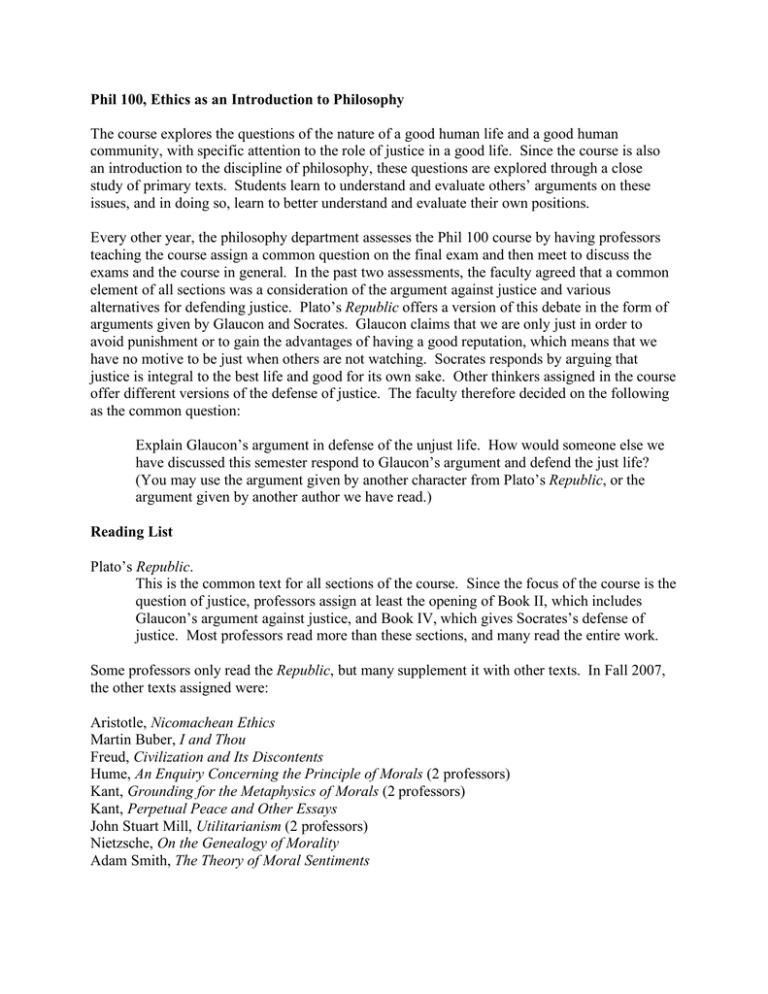
Phil 100, Ethics as an Introduction to Philosophy The course explores the questions of the nature of a good human life and a good human community, with specific attention to the role of justice in a good life. Since the course is also an introduction to the discipline of philosophy, these questions are explored through a close study of primary texts. Students learn to understand and evaluate others’ arguments on these issues, and in doing so, learn to better understand and evaluate their own positions. Every other year, the philosophy department assesses the Phil 100 course by having professors teaching the course assign a common question on the final exam and then meet to discuss the exams and the course in general. In the past two assessments, the faculty agreed that a common element of all sections was a consideration of the argument against justice and various alternatives for defending justice. Plato’s Republic offers a version of this debate in the form of arguments given by Glaucon and Socrates. Glaucon claims that we are only just in order to avoid punishment or to gain the advantages of having a good reputation, which means that we have no motive to be just when others are not watching. Socrates responds by arguing that justice is integral to the best life and good for its own sake. Other thinkers assigned in the course offer different versions of the defense of justice. The faculty therefore decided on the following as the common question: Explain Glaucon’s argument in defense of the unjust life. How would someone else we have discussed this semester respond to Glaucon’s argument and defend the just life? (You may use the argument given by another character from Plato’s Republic, or the argument given by another author we have read.) Reading List Plato’s Republic. This is the common text for all sections of the course. Since the focus of the course is the question of justice, professors assign at least the opening of Book II, which includes Glaucon’s argument against justice, and Book IV, which gives Socrates’s defense of justice. Most professors read more than these sections, and many read the entire work. Some professors only read the Republic, but many supplement it with other texts. In Fall 2007, the other texts assigned were: Aristotle, Nicomachean Ethics Martin Buber, I and Thou Freud, Civilization and Its Discontents Hume, An Enquiry Concerning the Principle of Morals (2 professors) Kant, Grounding for the Metaphysics of Morals (2 professors) Kant, Perpetual Peace and Other Essays John Stuart Mill, Utilitarianism (2 professors) Nietzsche, On the Genealogy of Morality Adam Smith, The Theory of Moral Sentiments
